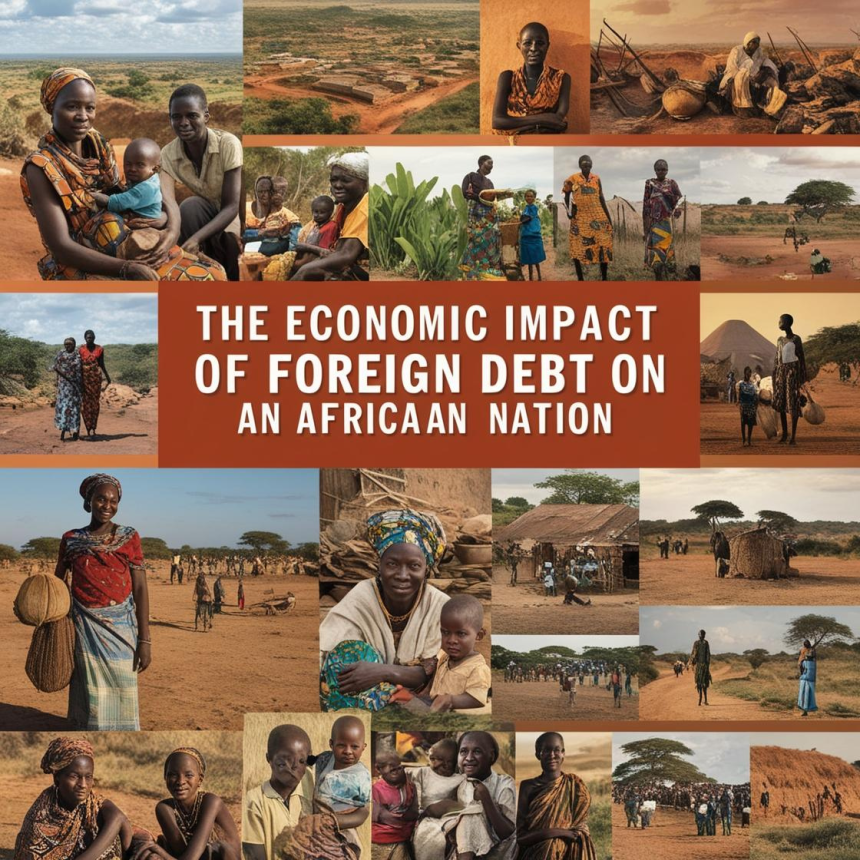I recently attended an annual general meeting of a popular Nigerian social club, which consists of high-net-worth individuals with an average age of 45 years. It was an extravagant three-day event, with a lavish party at the Oriental Hotel as the climax. I would guess that the event cost more than N500m, with other side expenditures bringing the total expenditure close to a billion naira. I also heard that there are other similar clubs across Nigeria. This event, along with another lavish burial I heard about in Anambra very recently, prompted me to ponder local capital mobilisation for national development.
For a nation to develop, it needs capital to build infrastructure, skill up its population, and equip the system it will operate on. However, this capital is not readily available or equally distributed—it needs to be sourced. Nations that have prospered have always been those able to mobilise capital to critical sectors of the economy that can spur national development and unlock more capital in other sectors. In Britain, for example, the textile industry created the capital that motivated British expansion across the globe, and steam engines were built to mine coal that supported the textile industries and other innovations.
Nations often begin their march to prosperity with local capital mobilisation and then seek additional capital from other countries. For Britain, capital from traders, merchants, and landowners became the initial seeds that fueled its infant textile industry. As the industry grew, profits became the capital for innovation and expansion, including colonialism. The Asian Tigers followed the same route—local capital supported infant industries that were scalable. As these industries grew, foreign capital came in to expand their scope. African countries emerging from independence and in a hurry to develop have often focused all their strategies on funding infrastructure and development by mobilising foreign capital, paying little attention to local capital mobilisation. This approach has continued to endanger the African economy as foreign debts pile up.
Foreign capital is simply local capital in other countries seeking to generate a higher return in regions with a higher rate of return on capital. As nations prosper, the rate of returns on capital decreases, prompting the capital to move to other countries with a higher return. There’s nothing inherently wrong with this; however, as we have seen in many countries, a certain amount of grit, patriotism, and purposefulness is needed to spur a nation to development—these ingredients are what foreign capital lacks. Lacking patriotism, foreign capital flees at the first sign of trouble, leaving economic havoc in its wake. This has been the story of Africa and Nigeria. Foreign capital is also subject to exchange rate volatility, and once a country becomes dependent on it, withdrawal seems impossible. Cross-border capital flow is chiefly responsible for Africa’s unending economic cycle of woes. Despite this, there are mounting external debts with very little infrastructure capable of generating the revenue to offset this debt.
Countries that have developed substantively have sought to first mobilise local capital in strategic sectors before additionally seeking foreign direct investment. China recognized that to prosper sustainably, it needed to build local capital without the dependency or debt trap associated with cross-border capital. To achieve this, it created a one-child policy and fostered a culture that, among other things, increased bank savings rates, thus providing Chinese banks with sufficient capital to fund development at a stable interest rate. Bank deposits, which are correlated with interest rates, are a measure of the availability of local capital. Currently, Nigeria’s bank deposit to GDP hovers around 22%, which is about the average for most African countries, with the exception of South Africa at above 60%. In 2010, China’s bank deposit to GDP was around 179%.
Nigeria, like many other African countries, have continued to waste funds in search of an elusive FDI while running in a cycle of debts, debt forgiveness, and economic instability due to the volatility occasioned by cross-border capital flow. I would estimate that Nigeria wastes over N1tr annually in search of foreign capital, with little invested to encourage local capital. Since being sworn in, Nigerian President Bola Ahmed Tinubu has been globetrotting in search of foreign direct investment while overlooking local efforts. Despite these efforts, foreign direct investment into Nigeria has continued to plummet over the last seventeen years. In 2023, FDI, a non-debt component of foreign capital imported into Nigeria, was less than $500m. Meanwhile, the combined debt exposure of African countries is estimated at $1.15 trillion, despite debt forgiveness by Western lenders in 2003. Nigeria’s external debt is $42 billion, more than its reserves. As Africa aggressively pursues foreign investment, FDI has kept declining, while debt-based foreign investment, such as FPI, keeps rising.
Make no mistake, FDIs are important for countries lacking infrastructure that need to quickly scale up development without waiting for the long-term growth of local capital. However, the pursuit of such FDIs must be delicately balanced with local capital mobilisation and managed with honest governance standards to reduce corruption and ensure that the money goes into projects that guarantee returns capable of repaying such FDIs.
African countries, such as Nigeria, must begin to look inward to grow their local capital and mobilise it for essential sectors. Firstly, there must be long-term plans to grow banks’ deposits by banking the unbanked, creating a culture of savings over insatiable consumption needs, and implementing birth control to reduce household expenditures. The government needs to be ready for business—extractive institutions and cultural behaviours that make investing in Nigeria difficult must be eliminated. Government institutions must become inclusive and spearhead the need for prosperity and development with a hands-on approach, where government agencies guide local investors to areas of investment. In Britain, it was the Duke of Bridgewater who invested in canal transportation infrastructure, which fueled Britain’s industrial revolution. Similarly, Kingdom Brunel and others provided innovation and investment for railways. Local capital mobilisation paves the way, with foreign investment following suit.
While the poverty rate in Nigeria is above 40%, Nigeria is also a country of two halves—the poor and high-net-worth individuals. These HNIs have a lot of capital but lack investment acumen, focusing their capital on dollar savings, luxury, or real estate, where it sits as dead capital. The government must find a way to create a culture of investment that will encourage these HNIs to invest in Nigeria. Social clubs have become a new way to pool funds; however, rather than wasting them on luxury, they could become a source of capital for local investment. The government should find a way to mobilise such social groups and the church, which are awash with capital, into investing in MSMEs-based manufacturing within the bounds of N2b, offering small-scale manufacturing that provides an alternative to imported products within a cluster. If this is successfully done, it would signal other investors. As opposed to large conglomerates that foreign investors are drawn to, MSMEs are the largest employers of labour. When set up in multiple locations, MSMEs can spur employment, transfer technological information, and drive innovation. Local bonds that solve local issues, such as waste management, energy, water supply, and transportation infrastructure, can be developed and sold to these HNIs as investment opportunities. The government should also provide a linkage between these HNIs and research institutions so they can become early investors in innovative products and technology with large-scale commercial applications. Mobilising and channelling such funds into commercial agriculture and food processing will tame inflation.


